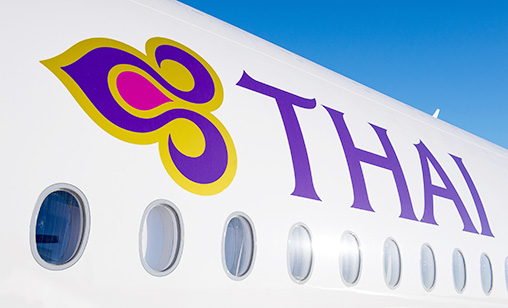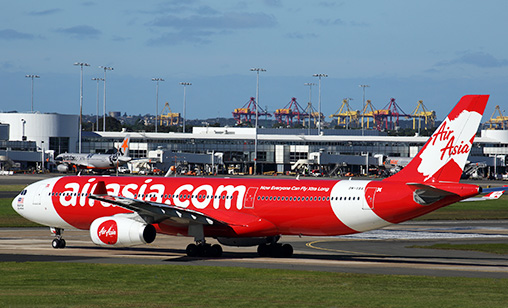Special Reports: Aircraft Leasing
Lessor consolidation ahead? Or maybe not?
October 1st 2021
There is no doubt these have been turbulent times for the world’s aircraft lessors. Read More » Some have navigated the crisis better than others from aircraft and engine deferrals and even repossessions with airline customers. Now, there is talk of an industry consolidation as aviation begins its emergence from the pandemic crisis.
 |
When aircraft leasing leader, Steven Udvar-Hazy, executive chairman of California-based Air Lease Corporation, spoke at the Airline Economics Growth Frontiers London conference last month he expressed aloud the fears and hopes of the sector’s managements. Recovery in air traffic to pre-crisis levels, he believes, will take longer than many expect and it will be “turbulent” because of likely new virus strains and differences in vaccination rates across the world.
Conversely, he is confident the large numbers of aircraft ordered by lessors pre-pandemic will be needed by airlines despite the crisis. Nor does he view the downturn as creating “huge quantities of undesirable aircraft” in lessors’ orderbooks.
Udvar-Hazy said that when carriers parked hundreds of aircraft early last year, a big number of these planes should have been replaced between 2017 and 2019. They were being kept in service as “surplus” assets in the prosperous market conditions of the time. Many of these aircraft will need to be replaced.
Among his other observations were that new aircraft demand will come from start-up carriers entering the market after the crisis, planes will depart fleets and be converted to freighters and environmental demands will prioritise flying fuel efficient fleets.
Whatever happens, many in the industry foresee an increasing trend towards consolidation following the proposed $30 billion merger of lessor major, AerCap, and GECAS. It will create the largest aircraft lessor in the world by portfolio value with a combined fleet of more than 2,000 airplanes and an additional 500 aircraft on order. Cirium data said the combined company will account for about 16% of the global passenger jet leasing portfolio and 15% by value. The lessor duo has a lessee base of 266 airline customers.
With that sort of sway, many competitors will have little choice but to consolidate, eating up smaller players. Indeed, those minor players are hurting the most from the pandemic. But just how much industry consolidation there will be is a matter of debate - but most agree it will happen.
 |
SMBC Aviation Capital’s Peter Barrett, CEO of a consortium of leading Japanese institutions headquartered in Dublin, has indicated the lessor could receive offers to participate in consolidation because it is one of the best capitalized firms in the industry. SMBC has 496 owned or managed aircraft. “If any opportunities present value and fit our strategy, we will certainly have a look at them,” he told Reuters, and added events of the last 18 months would “probably accelerate” the sector’s consolidation.
At regional aircraft lessor, TrueNoord, CEO Anne-Bart Tieleman told Orient Aviation: “we certainly think the aircraft leasing market will see some consolidation in the foreseeable future. This is part of the development of our industry’.
“COVID-19 is not the direct catalyst for this but definitely a reason why you might see acceleration of this process. As our industry grows, the size of an organization and balance sheet health does matter. Players in the market recognize this,” he said.
“But it is certainly not going to happen overnight. It will take several years to make certain deals happen even if, from the outset, some of them seem to make sense on paper. This also is the case in our particular segment, leasing regional aircraft, although all on a smaller scale.”
Other industry leaders are more cautious. Patrick Hannigan, CEO of CDB Aviation, a wholly owned Irish subsidiary of CDB Financial Leasing, believes lessors have more important issues to manage than mergers.
“The impact lessors have is limited at this time because there is too much uncertainty, a situation that is out of the control of lessors and airlines. The focus should be on the actions of governmental and provincial authorities in addressing health directives around the pandemic and managing protocols to facilitate proper passage and traffic between countries,” he told Orient Aviation.
Aircraft Finance Lease CEO, Deepark Sharma, predicted organic consolidation will happen but not on any great scale. And Luc Morvan, chief representative at the Singapore office of MTU Maintenance Lease Services said the extent of consolidation remains to be seen.
 |
| 'The Asia-Pacific is a diverse region in so many ways that the industry’s return will be fragmented and uneven. China has the advantage of a large domestic market which may be currently down, however the size of this market offers air travel advantages and thus will open before most others. Important to note is that even with the return of travel segments emerging, travel will not be easy due to inconsistent border rules and requirements which may hamper intra-region and certainly wider international travel. It may well be 2023 before it looks anything like normal traffic patterns' |
| Patrick Hannigan CDB Aviation CEO |
“Economies of scale certainly could benefit certain providers, but it depends entirely on their business models, synergies with potential partners and fleets as well as the commercial intention behind any acquisitions if they are looking to change portfolio size, age, range of assets, geographical customer base etc,” Morvan said.
Senior executives outside the leasing sector also appear happy with the prospect of more consolidation. Airbus CEO, Guillaume Faury, told analysts during the company’s first quarter earnings conference call earlier this year that his first observation was lessors have remained very strong in the past year.
“They’ve been instrumental in enabling that industry to keep moving forward in a very, very challenging situation. It relies on the stability of the financial system. There is no financial crisis and that is very important for us.” He acknowledged Airbus considers consolidation of some lessors important. “There are pros and cons in these situations. But overall, I would say we are fine with it,” he said.
International Air Transport Association (IATA) director general, Willie Walsh, also has dismissed concerns about too much consolidation and the potential risk of anti-competitive behavior in the leasing sector.
“It is still a pretty fragmented industry,” he said during a recent media briefing. “Generally, the leasing sector is competitive. There are lots of options out there for most if not all airlines. In fact, it would be fair to say that in many cases lessors have been part of the solution for the cash crisis airlines have faced through 2020. You have seen a lot of sale and leaseback activity.
“In most cases, these have been, from my personal experience (as former CEO of International Airlines Group), at rates I would have considered normal or near-normal. I have no concern about the leasing industry at this stage.”
Alton Aviation Consultancy, which has offices in New York, Dublin, Hong Kong, Beijing, Tokyo and Singapore, has identified more than 900 passenger aircraft operated last year by “high risk” airlines—defined as operators carrying liquidity of two months or less and without government ownership. They acquired the majority of the 900 airplanes, most less than 10 years old, via lease.
“Lessors have supported struggling airlines with concessions. Now some need a structured plan to weather the crisis themselves,” the Alton consultants wrote. The consultancy expects to see increased portfolio consolidation with well capitalized lessors acquiring assets or full portfolios from smaller players and investors either rationalizing their holdings or being forced to sell.
There is no doubt many bigger aviation lessors have weathered the pandemic storm reasonably well. AerCap Holdings, which reported a profit of $1.1 billion in 2019, but sank to a $299 million loss in 2020, recently announced it was back in the money in the quarter to June 30 to the tune of $1.173 billion.
 |
In Singapore, BOC Aviation has reported a net profit of $510 million in 2020. In August, it announced an interim 2021 profit of $254 million. Profitability has been better from the second half of 2020, as earnings and cash flow outlook improved for most of its airline customers, particularly in China, Europe and the U.S., it said. The lessor has a portfolio of 536 owned, managed and committed aircraft of which 377 are owned.
At SMBC, Barrett reported 2020 profits of $15 million even though the company described the pandemic-hit year as the worst 12 months the industry had experienced.
After going through a bad patch last year, when it lost $47 million, CDB Aviation achieved a 46.2% rise in its first half profits, to $280 million.
“The first half of 2021 has seen some green shoots pointing to the start of an industry recovery in earnest, which is expected to accelerate in the latter part of 2021,” the company said. CDB’s Hannigan believes that over time aircraft leasing in the Asia-Pacific, as in other regions, will continue to grow as a component of an airline’s fleet strategy.
“Today, the successful leasing of aircraft requires a lessor to bring to the table a variety of solutions to provide an airline with flexibility and meet their needs for growth,” he told Orient Aviation in a written response.
Despite brighter news for some lessors, a major issue for the sector is negotiating with cash-strapped customers desperately in need of lease payment reductions or deferrals. Some airlines also have faced repossession of their airframes and engines.
According to ratings agency, Fitch, aircraft leasing companies have reported nearly 90% of airlines have been unable to make lease payments and/or have requested rent deferrals since the pandemic began.
Lessors also are dealing with increased defaults and lower renewals. The resulting reduction of cash flow, together with increased anxiety about when counterparties might resume honouring obligations, is creating significant stress for aviation lessors.
 |
The extent of that pressure was revealed in a September note released by law firm, Stephenson Harwood. Headquartered in London, it has been advising Hong Kong’s ICBC Aviation Leasing on a range of aircraft repossessions and airline re-organization deals, involving more than 17 airlines across 11 jurisdictions.
The legal proceedings concerned more than 50 aircraft in multiple jurisdictions, including Australia, India, Indonesia, Japan, Korea, Malaysia, Nepal, the Philippines, Singapore, China, Laos, Thailand and Vietnam.
Briefs have included advising on Malaysia’s AirAsia X’s scheme of arrangement in Malaysia, which concluded with a seminal judgment in favour of ICBC in the Malaysian courts. AirAsia X recently posted a record quarterly loss of $5.9 billion, eight times more than a year ago and its ninth successive quarterly deficit.
Stephen Harwood also has represented ICBC in restructuring negotiations with Thai Airways International and advised on the repossession of engines leased to Tigerair Australia but located in Singapore. Stephenson Harwood partner, Simon Wong, said the Malaysian Court’s judgment in relation to AirAsia X was significant because it dealt with the pertinent issue of whether a scheme of arrangement is regarded as insolvency proceedings for the purpose of the most important international treaty in aviation finance - the Cape Town Treaty. The Treaty is a convention defining mobile equipment, including aircraft, and specifies international rules on issues including repossession and the effect of a particular state’s bankruptcy laws.
Despite the uncertainty of present times, major lessors are ordering aircraft and engines and insist they will eventually accept all previous orders. And some of them have seized opportunities where rivals have feared to tread.
Avolon Leasing, a Dublin-based lessor owned by China’s Bohai Leasing, is extending its remit to the freighter conversion business.
With the growth of e-commerce in a rapid upward climb and air cargo revenue forecast to exceed $150 billion in 2021 and then double in the next decade, to capitalize “on this clear opportunity”, Avolon has signed an agreement with Israel Aerospace Industries (IAI), the world’s leading independent freighter conversion company.
Avolon will be IAI’s launch customer for its A330-300 freighter conversion program. The agreement will see Avolon partner with IAI and take 30 A330-300 conversion slots with IAI between 2025 and 2028.
Avolon CEO, Domhnal Slattery, commented: “we identified IAI as a long-time global leader in the aircraft conversion business and the right partner for Avolon to capitalize on the unparalleled growth in e-commerce”.
“Today, the global air freight market is worth more than $150 billion annually and the sector is transforming, with air cargo traffic forecast to double in the next 20 years. This agreement signals Avolon’s intention to be a leading player in that expansion.”